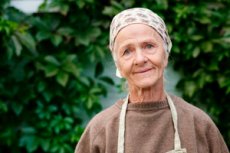New publications
New study explains why people move slower as they age
Last reviewed: 02.07.2025

All iLive content is medically reviewed or fact checked to ensure as much factual accuracy as possible.
We have strict sourcing guidelines and only link to reputable media sites, academic research institutions and, whenever possible, medically peer reviewed studies. Note that the numbers in parentheses ([1], [2], etc.) are clickable links to these studies.
If you feel that any of our content is inaccurate, out-of-date, or otherwise questionable, please select it and press Ctrl + Enter.

Our bodies naturally slow down as we age. Possible explanations include a slower metabolism, loss of muscle mass, and decreased physical activity over time.
Now, researchers at the University of Colorado Boulder say older people may move more slowly in part because it takes more energy for them to move than it does for younger people. The scientists believe the new study, published in The Journal of Neuroscience, could help develop new diagnostic tools for diseases such as Parkinson's disease and multiple sclerosis.
Older people slow down to save energy
In this study, the researchers recruited 84 healthy participants, including young adults aged 18 to 35 years and older adults aged 66 to 87 years.
In the study, participants were asked to use a robot to touch a target on a screen with their hand. By analyzing how the participants performed these actions, the scientists found that older adults altered their movements at certain points to save more energy than younger adults.
“As we age, our muscle cells may become less efficient at converting energy into muscle force and movement,” explained Professor Alla Ahmed, senior author of the study. “We also become less efficient in our movement strategies, perhaps to compensate for the decline in strength. We recruit more muscles, which requires more energy, to perform the same tasks.”
Does the brain's reward circuitry work in older adults?
Ahmed and her team also wanted to find out how aging affects the brain's "reward circuitry," since the body produces less dopamine as we age.
Participants again used the robot to control a cursor on the screen, aiming for a specific target. If they hit the target, they received an auditory reward.
The scientists found that both young and old adults reached the target faster when they knew they would hear a reward sound. However, they did so differently: young adults simply moved their hands faster, while older adults improved their reaction times by starting the movement 17 milliseconds earlier.
“The fact that older adults in our study still responded to reward tells us that the reward circuitry is maintained with age, at least in our sample of older adults,” Ahmed said. “However, there is evidence from other studies that reward sensitivity declines with age. Our results show that older adults were as sensitive to reward as younger adults, but much more sensitive to effort.”
Potential for new diagnostics in Parkinson's disease and MS
The researchers believe their findings could help develop new diagnostic tools for movement-related disorders.
“Slowing down as we age can have a significant impact on our quality of life,” Ahmed explained. “It can limit not only physical activities but also social activities. It’s important to understand the underlying causes and identify potential interventions that can help slow or reverse the decline.”
Ahmed stressed that slower movement is not only seen with age, but also in a number of neurological disorders. Understanding the reasons for this could help identify better interventions, and tracking movement could become a valuable biomarker of neurological health.
More research is needed on the aging brain and movement
After reviewing the study, Clifford Segil, a neurologist at Providence Saint John's Health Center in Santa Monica, California, noted the importance of encouraging physical activity in older age, even if it requires more energy.
"My rule when treating older patients as a neurologist is, 'If you don't use it, you lose it!'" Segil said. "I agree that encouraging older patients to move has many health benefits."
Ryan Glatt, senior brain health coach and director of the FitBrain program at the Pacific Rim Neuroscience Institute in Santa Monica, also noted the importance of further research linking observed behaviors to neurophysiological evidence.
